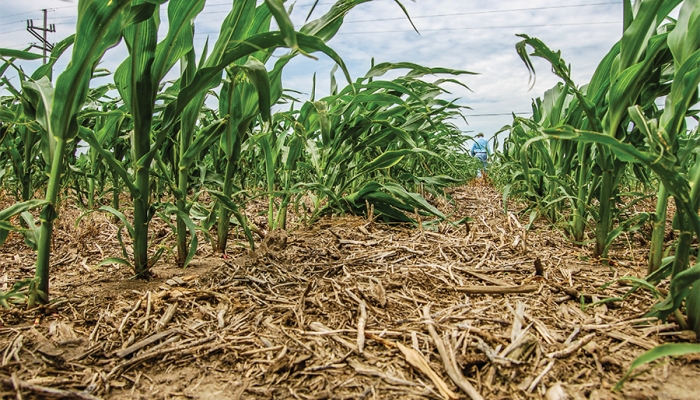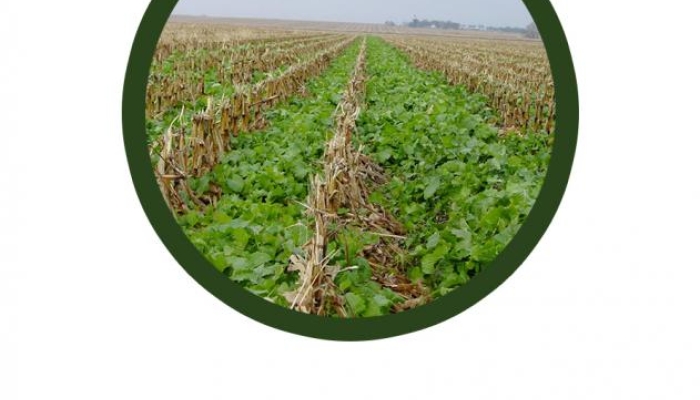Investing in Soil Health
Producer Partnerships Sought, Funds Available Soon
Are you a producer who is interested in adding conservation activities such as cover crops, but have been deterred by the costs involved in changing your operation? Good news! There will soon be funds available for soil health improvement practices in the district, thanks to funding from the USDA Natural Resources Conservation Service through the Resource Conservation Partnership Program (RCPP).
The Upper Big Blue NRD and the Central Platte NRD are partnering with Nebraska NRCS and The Nature Conservancy on the soil health initiative Resilient Futures for Nebraska Soil. The goal of the program is to improve soil health through various practices on 100,000 acres of Nebraska cropland over the next five years.
The funding will provide $4.4 million for technical and financial assistance for producers in the two central Nebraska districts. Eligible producers will have the option of implementing three soil health practices: cover cropping, reduced tillage, and diversified crop rotations. Payments will vary from $15 to $40 per acre depending on the type of soil health practice implemented.
Healthy cropland soils boost fertility and reduce water pollution. Healthier soils also provide a more stable yield, reduce erosion, and improve nutrient availability and moisture holding capacity.
The funds will provide a financial benefit to producers, who will see an immediate impact on their bottom line as well as a long-term impact on their soil health. Reports detailing return on investment will be available, along with reports on individuals’ soil carbon and water quality outcomes. Producers will also have year-round assistance with planning, implementation, and management for new soil health practices, as well as opportunities to attend trainings with leaders and experts in soil health and agronomy.
An exciting component to this partnership is the access it will provide producers to the newly created Ecosystem Services Market Consortium. This carbon marketplace will connect companies looking to offset their carbon footprint with producers who are implementing soil health practices that capture carbon. Payments will not be tied to carbon storage but will be guaranteed by acre. It will be a win-win for Nebraska producers, as it will provide the benefits of improved soil health on their farms and ongoing payments for the practices.
Carbon markets are an emerging field and there are many risks and unknowns. The managed marketplace available through this program will give producers a low-risk way to approach this new opportunity to improve their operations. Participating companies will include Cargill, Target, McDonald’s, and others.
Producers will control their data in this program, including who sees it, how it’s used, and where and how long it is stored. With producer permission and anonymity controls in place, project data will be shared wherever possible to achieve the greatest public benefit.
The NRDs are hoping to enroll producers across the spectrum of soil health experience, from those with no knowledge or experience with reduced tillage, cover crops, and diverse rotations, to those with a practice that already incorporates these things. Producers with an existing soil health practice (such as reduced tillage) can add a second or third practice to qualify for payment or could increase the practice (as in moving from strip tillage to no-till). There is no gross income cap for these payments and no maximum amount that one farm operation can receive.
Project partners are still working out logistics, with the plan to enroll 20,000 acres in the first year. The program is expected to begin enrolling producers from December 2020 to March 2021; however, producers can get on the advance list to participate by contacting their NRD office. Interested producers can reach out to the Upper Big Blue NRD at info@upperbigblue.org or 402-362-6601 and Courtney Widup (Central Platte NRD, widup@cpnrd.org, 308-385-6282) for more information.


